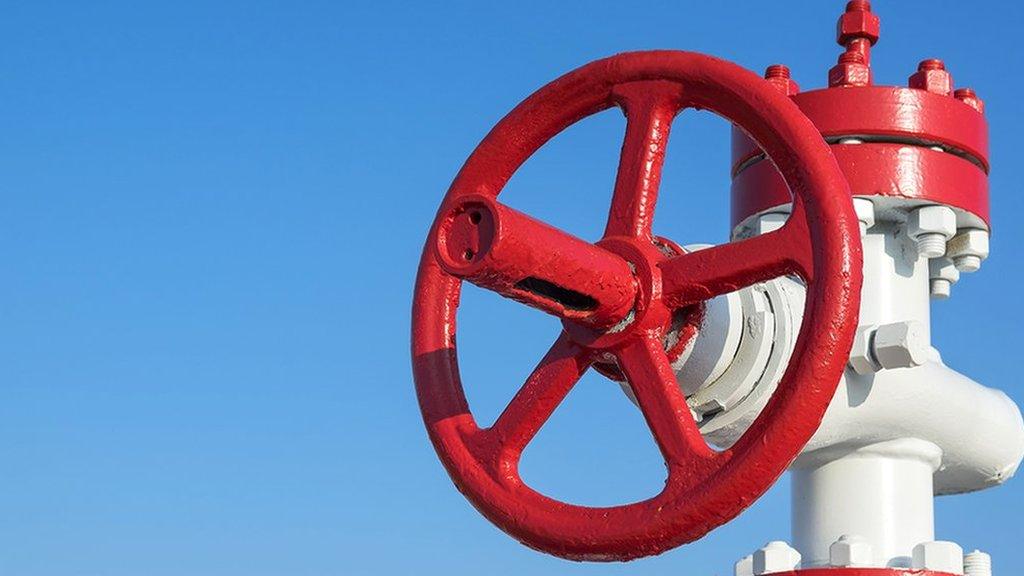Italy elections: 'It'll break my heart if energy costs shut my historic shop'
- Published
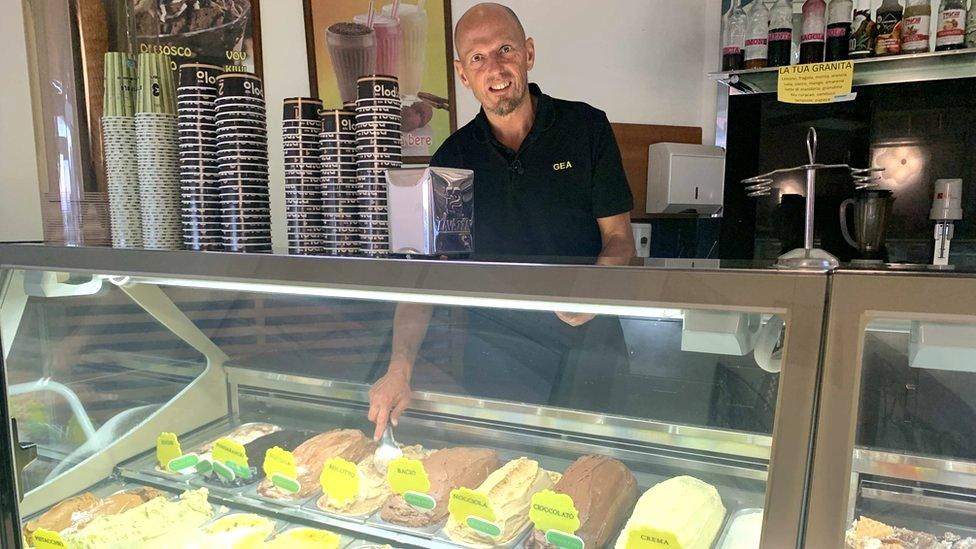
Gianadrea Pipolo fears that soaring bills may force his ice-cream shop, opened by his grandfather in 1929, to close
Pistachio, hazelnut and forest fruit - the flavours may have evolved and the recipes changed over the 93-year history of the Pipolo ice-creamery, but its mouth-watering presence on the seafront in Trieste has been a constant.
Now, though, the energy crisis may finally force the outlet to close.
Beside the tubs of creamy delights, a poster on the wall shows the monthly electricity bill here: €4,483.45 (about £3,880) for August 2021, jumping to €15,539.18 a year on.
Above the figures are the words: "Io Non Voto." ("I'm not voting.")
Ahead of Italy's election next week, shop owner Gianadrea Pipolo believes that politicians need to focus more on the cost-of-living emergency.
"We can manage for another two or three months, but after that, we'll stop paying the bills - because it's unsustainable," he says.
"They'll cut us off and we'll have to shut down. It would break my heart - especially after the problems of the pandemic.
"My grandfather opened this place in 1929. We survived the Second World War and everything else - but now, the possibility of closing because of an electricity crisis hurts a lot."
An hour's drive north of Trieste reveals what is behind that worsening crisis.
Inside a tunnel dug into lush mountains in Tarvisio, near Italy's border with Austria, two iron pipes rise from the ground carrying a precious commodity on which Europe has relied for decades: Russian gas, the leverage that Vladimir Putin has had in the West. But it is tapering off.
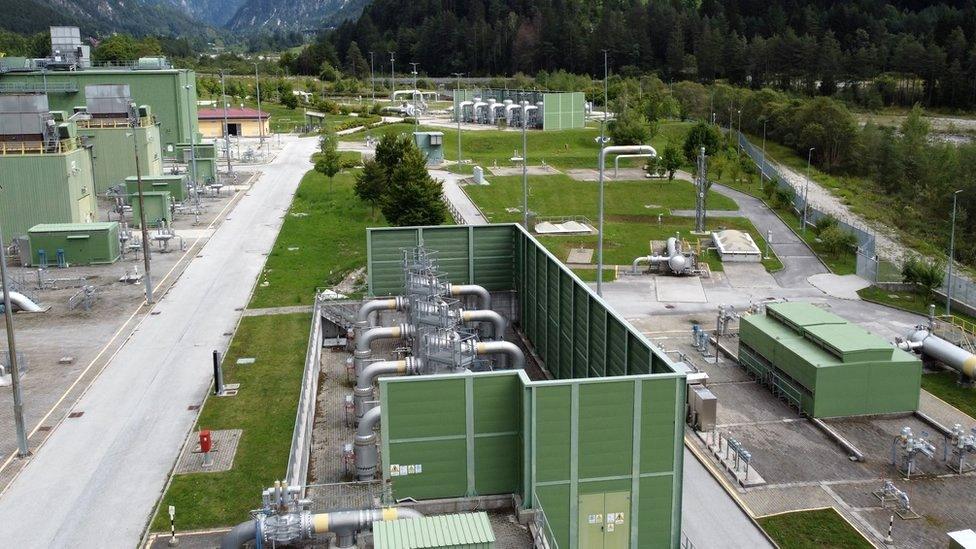
Sanctions against Russia have prompted Gazprom to restrict supply through to Europe's pipelines, including in Tarvisio
Before Russia began its large-scale military attack in Ukraine, 40% of Italy's gas came through this pipeline, with Italy the EU's second-largest importer. Now it has dropped to around 18%, as Europe weans itself off its dependence on Moscow.
That diversification, and the West's sanctions against the Kremlin, have prompted Gazprom, Russia's state energy provider, to restrict supply through Europe's pipelines, including in Tarvisio.
The drastic drops in Russian gas have pushed up prices across the world, and the cost-of-living crisis is now at the centre of Italy's upcoming election.
"The main entry point for gas is no longer here, but in Sicily, with gas coming from Algeria," says Simone Nobili of SNAM, the operator of Italy's gas networks. "The Italian government is trying to diversify the supply as much as possible, not only through pipes but also through liquefied natural gas (LNG)."
Recent contracts with Algeria have now made it Italy's biggest gas supplier, supplanting Russia.
Other sources, including Azerbaijan and another pipeline transporting gas from Norway and the Netherlands, have also increased. And Italy is investing more in regasification vessels that receive LNG mainly from Qatar and the US.
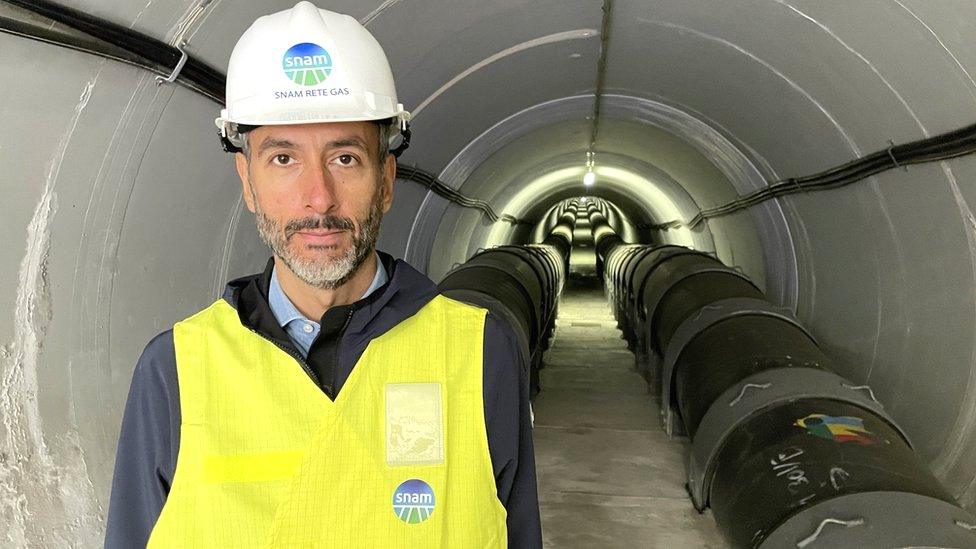
Simone Nobili says he hopes to avoid any necessity to have to ration gas
"It is very difficult to be able to predict whether or not we will have enough gas," says Mr Nobili.
"With the government, we are working very hard to try to resolve - or at least succeed in fighting - this emergency situation so as to avoid having to ration gas. Up until now, Russia has always been a reliable supplier: not even during the Cold War did we go without its gas."
But this is a new era - and, belatedly, a wake-up call for a continent that is staring at the possibility of Moscow turning off the taps entirely.
Italy's gas storage facilities are now more than 80% full, as it prepares for what could be a hard - and expensive - winter.
As prices surge, it is prompting fears here that the public appetite for supporting Ukraine may sour: a calculation that Mr Putin is clearly making by tightening gas supplies.
Polls already show that most Italians oppose sending arms to Ukraine, and the country has deep, historic ties to Russia that have helped produce a climate in which Italy is sometimes portrayed as a weak link in the West's pro-Ukraine front.
Mario Draghi, the outgoing prime minister, has been a key pillar of support to Kyiv - but some believe a new right-wing government could change tack.
While Giorgia Meloni, the favourite to become prime minister, has been firmly behind Mr Draghi's position on Ukraine, her coalition partners Matteo Salvini and Silvio Berlusconi are long-time Russophiles, with close personal ties to Mr Putin.
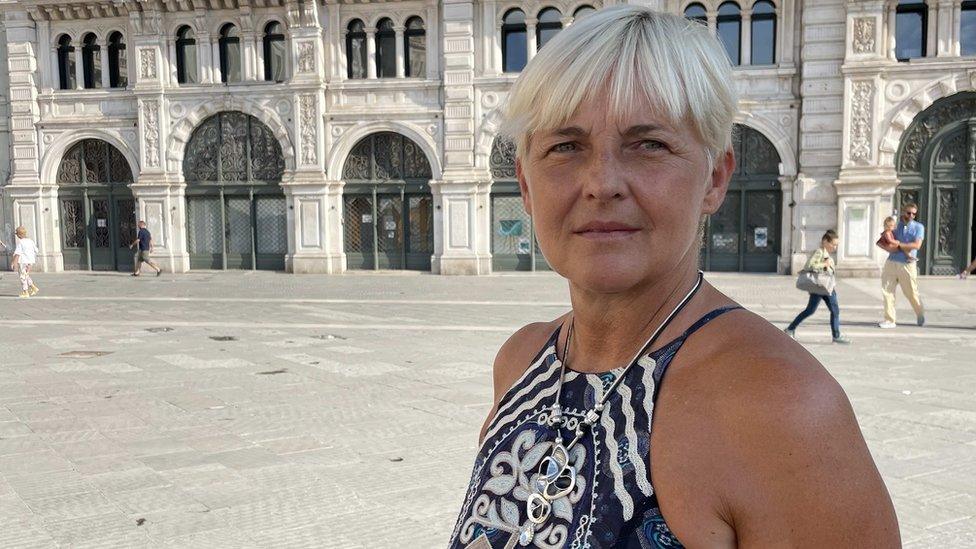
Polls show that most Italians, like Alessandra Richetti, are against their government sending arms to Ukraine
"I don't think that some politicians' relationships with Russia are what's behind our opposition to the war", says Alessandra Richetti, who has taken part in pacifist demonstrations in Trieste.
"It's about our constitution, which explicitly rejects participation in wars. I want the next government to stop sending arms to Ukraine."
She believes there is hypocrisy in refusing Russian gas because of its egregious actions in Ukraine, while simultaneously turning to other countries like Qatar and Algeria, "both with dirty human rights records". "Meanwhile, we're not talking about how most Europeans are being brought to their knees by this war," she adds.
At the commercial port of Trieste, Italy's largest in terms of traffic, business is booming as Adriatic routes replace blockages in the Black Sea.
As a large container ship carrying goods from Turkey offloads, the president of the port authority, Zeno D'Agostino, tells me there's been an increase of 25%-30% since the war began.
"For us it's positive," he says. "But if I look at why we're getting these flows, it's negative because I don't like war. For us, everything is an opportunity, because we are a link between a world that is separating."
Out at sea, near the port, the world's largest sailing yacht sits idle, seized by Italian authorities from a Russian oligarch close to the Kremlin. At 143 metres long, and with eight decks, it is valued at €530m.
It is visible from across this coastal city: a constant reminder to the people of Trieste of what is happening in Ukraine - and how its ramifications have spread through Italy and through the political choice that Italians now face.
- Published29 September 2022
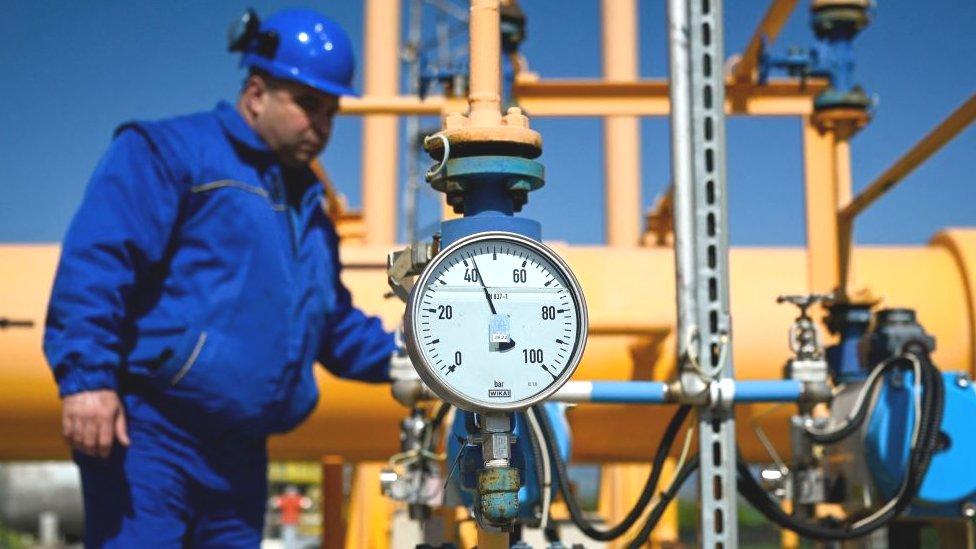
- Published26 January 2023
